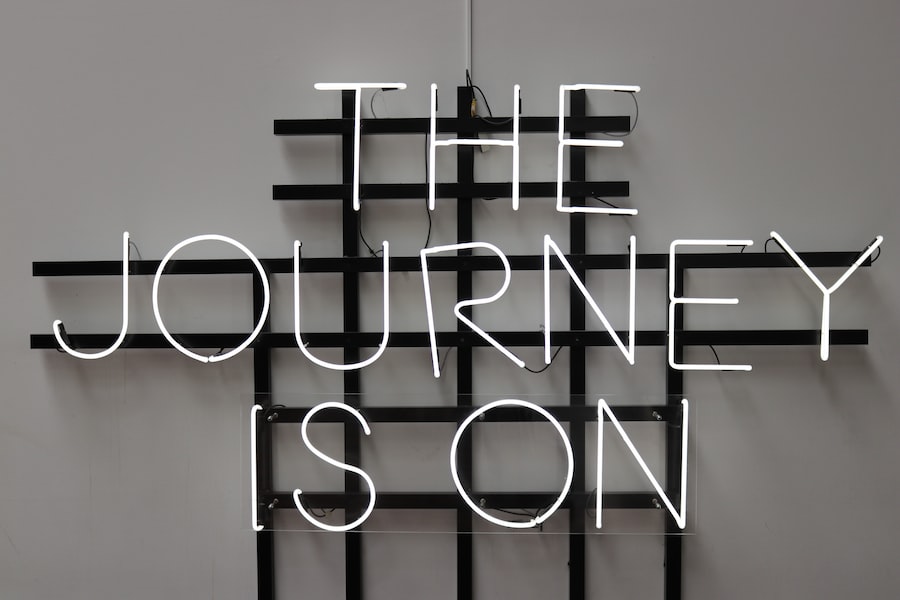MarTech, short for Marketing Technology, has become an integral part of businesses’ strategies in today’s digital age. It encompasses the tools and technologies that marketers use to automate and streamline their marketing efforts, from customer acquisition to retention. One area where MarTech plays a crucial role is in customer journey mapping. Customer journey mapping is the process of understanding and visualizing the various touchpoints and interactions a customer has with a brand throughout their entire journey, from initial awareness to post-purchase support. By leveraging MarTech tools, businesses can gain valuable insights into customer behavior and preferences, allowing them to create personalized and seamless experiences that drive customer engagement and loyalty.
Key Takeaways
- MarTech plays a crucial role in customer journey mapping.
- Personalization is key to creating memorable customer experiences.
- MarTech can be used to improve customer engagement in Malaysia.
- MarTech can help create a seamless customer experience.
- Data is important in MarTech-driven customer journeys.
Understanding the Role of MarTech in Customer Journey Mapping
Customer journey mapping is the process of understanding and visualizing the entire customer journey, from the first point of contact to the final purchase decision. It involves identifying all the touchpoints and interactions a customer has with a brand, both online and offline, and analyzing their behavior and preferences at each stage. By mapping out the customer journey, businesses can gain a deeper understanding of their customers’ needs and pain points, allowing them to tailor their marketing efforts to meet those needs.
MarTech plays a crucial role in customer journey mapping by providing businesses with the tools and technologies they need to collect, analyze, and interpret data about their customers’ behavior and preferences. For example, web analytics tools can track how customers interact with a website, providing insights into which pages they visit, how long they stay on each page, and what actions they take. Social media listening tools can monitor conversations about a brand on social media platforms, helping businesses understand what customers are saying about them and identify any issues or opportunities for improvement.
Personalization: The Key to Creating Memorable Customer Experiences
Personalization is the process of tailoring marketing messages and experiences to individual customers based on their preferences, behavior, and demographics. It involves using data and insights to deliver relevant and timely content to customers, making them feel valued and understood. Personalization has become increasingly important in today’s digital age, where customers are bombarded with generic marketing messages and expect brands to know and cater to their individual needs.
MarTech enables personalization in customer journeys by providing businesses with the tools and technologies they need to collect, analyze, and leverage customer data. For example, customer relationship management (CRM) systems can store and organize customer data, allowing businesses to track customer interactions and preferences over time. Marketing automation platforms can use this data to deliver personalized messages and offers to customers at the right time and through the right channels.
How to Use MarTech to Improve Customer Engagement in Malaysia
Customer engagement refers to the level of interaction and involvement a customer has with a brand. It is a key metric for measuring the success of marketing efforts, as engaged customers are more likely to make repeat purchases, refer others to the brand, and become brand advocates. In Malaysia, where competition among businesses is high, it is crucial for brands to find ways to engage their customers effectively.
MarTech offers a range of tools and technologies that can help businesses improve customer engagement in Malaysia. For example, social media management platforms can help businesses monitor and respond to customer comments and messages on social media platforms, allowing them to engage in real-time conversations with their customers. Email marketing platforms can help businesses send personalized and targeted emails to their customers, keeping them informed about new products or promotions.
Creating a Seamless Customer Experience with MarTech
A seamless customer experience refers to a smooth and consistent experience across all touchpoints and interactions a customer has with a brand. It involves removing any friction or barriers that may exist between different channels or departments within a business, ensuring that customers have a seamless experience from start to finish. A seamless customer experience is crucial for building trust and loyalty with customers, as it shows that a brand values their time and effort.
MarTech plays a crucial role in creating a seamless customer experience by providing businesses with the tools and technologies they need to integrate and automate their marketing efforts. For example, customer data platforms can collect and unify customer data from various sources, allowing businesses to create a single view of the customer and deliver consistent messages and experiences across all channels. Marketing automation platforms can automate repetitive tasks and workflows, ensuring that customers receive timely and relevant communications at every stage of their journey.
The Importance of Data in MarTech-Driven Customer Journeys

Data-driven customer journeys refer to the process of using data and insights to guide marketing efforts and create personalized experiences for customers. It involves collecting, analyzing, and interpreting data about customer behavior, preferences, and demographics, and using this information to deliver targeted messages and offers. Data-driven customer journeys are crucial for businesses looking to optimize their marketing efforts and drive better results.
MarTech provides businesses with the tools and technologies they need to collect, analyze, and leverage customer data in their marketing efforts. For example, customer analytics platforms can help businesses track and analyze customer behavior across various touchpoints, providing insights into which channels or campaigns are driving the most engagement or conversions. Predictive analytics platforms can use historical data to forecast future customer behavior, helping businesses make more informed decisions about their marketing strategies.
Leveraging MarTech to Build Customer Loyalty in Malaysia
Customer loyalty refers to the level of commitment and attachment a customer has towards a brand. It is a key metric for measuring the success of marketing efforts, as loyal customers are more likely to make repeat purchases, refer others to the brand, and become brand advocates. In Malaysia, where competition among businesses is high, it is crucial for brands to find ways to build loyalty with their customers.
MarTech offers a range of tools and technologies that can help businesses build customer loyalty in Malaysia. For example, loyalty management platforms can help businesses create and manage loyalty programs, allowing them to reward customers for their repeat purchases or referrals. Customer feedback platforms can help businesses collect and analyze feedback from their customers, allowing them to identify any issues or opportunities for improvement and take appropriate action.
The Future of Customer Journeys: Insights from MarTech Experts in Malaysia
The future of customer journeys in Malaysia is expected to be driven by advancements in technology and changing consumer expectations. MarTech experts in Malaysia predict that businesses will need to leverage emerging technologies and tools to create more personalized and seamless experiences for their customers. For example, artificial intelligence (AI) and machine learning (ML) are expected to play a crucial role in automating and personalizing customer interactions, while virtual reality (VR) and augmented reality (AR) are expected to enhance the overall customer experience.
Using MarTech to Enhance Customer Service and Support in Malaysia
Customer service and support refer to the assistance and guidance provided to customers before, during, and after a purchase. It is a crucial aspect of the customer journey, as it can greatly impact a customer’s perception of a brand and their likelihood of making repeat purchases. In Malaysia, where customer expectations are high, it is crucial for businesses to provide excellent customer service and support.
MarTech offers a range of tools and technologies that can help businesses enhance customer service and support in Malaysia. For example, chatbot platforms can provide instant responses to customer inquiries, helping businesses provide 24/7 support without the need for human intervention. Customer service management platforms can help businesses track and manage customer inquiries and complaints, ensuring that they are resolved in a timely manner.
Balancing Automation and Human Touch in MarTech-Enabled Customer Journeys
Automation refers to the process of using technology to perform repetitive tasks or workflows without human intervention. It can greatly streamline marketing efforts and improve efficiency, allowing businesses to deliver timely and relevant messages to their customers. However, it is important to strike a balance between automation and the human touch in MarTech-enabled customer journeys.
MarTech offers a range of tools and technologies that can help businesses balance automation and the human touch in customer journeys. For example, marketing automation platforms can automate repetitive tasks and workflows, ensuring that customers receive timely and relevant communications. However, it is important to supplement automation with personalized interactions and human support, such as through live chat or phone support, to provide a more personalized and human touch.
Measuring the ROI of MarTech Investments in Customer Journey Optimization
ROI, short for Return on Investment, refers to the profitability or value generated from an investment. Measuring the ROI of MarTech investments in customer journey optimization is crucial for businesses looking to assess the effectiveness of their marketing efforts and make informed decisions about their future investments.
There are several metrics that businesses can use to measure the ROI of MarTech investments in customer journey optimization. For example, conversion rate measures the percentage of visitors who take a desired action, such as making a purchase or filling out a form. Customer lifetime value measures the total revenue generated from a customer over their entire relationship with a brand. Customer satisfaction measures the level of satisfaction or happiness a customer has with a brand’s products or services.
MarTech plays a crucial role in customer journey optimization by providing businesses with the tools and technologies they need to understand and engage their customers effectively. By leveraging MarTech tools, businesses can create personalized and seamless experiences that drive customer engagement and loyalty. In today’s digital age, where customers have high expectations and are constantly bombarded with marketing messages, investing in MarTech is crucial for businesses looking to stay ahead of the competition and deliver exceptional customer experiences.
If you’re interested in learning more about how MarTech shapes customer journeys in Malaysia, you should definitely check out this insightful article from Martech.com.my. Titled “The Power of Data-Driven Personalization in Malaysian Marketing,” it delves into the importance of personalization, engagement, and experience in today’s marketing landscape. The article explores how leveraging data-driven strategies can help businesses create more meaningful connections with their customers, ultimately driving better results. To read the full article, click here.
FAQs
What is MarTech?
MarTech is a combination of marketing and technology that helps businesses to achieve their marketing goals by using digital tools and platforms.
What is Personalization?
Personalization is the process of tailoring marketing messages and experiences to individual customers based on their preferences, behavior, and demographics.
What is Engagement?
Engagement refers to the level of interaction and involvement that customers have with a brand or its marketing messages. It can be measured by metrics such as clicks, likes, shares, and comments.
What is Customer Experience?
Customer experience refers to the overall impression that customers have of a brand based on their interactions with it across all touchpoints, including marketing, sales, customer service, and product usage.
How does MarTech shape customer journeys?
MarTech enables businesses to collect, analyze, and use customer data to personalize marketing messages, improve engagement, and enhance customer experience across all touchpoints. This helps to create a seamless and consistent customer journey that leads to higher customer satisfaction and loyalty.
What are some examples of MarTech tools?
MarTech tools include customer relationship management (CRM) software, marketing automation platforms, social media management tools, content management systems (CMS), data analytics tools, and artificial intelligence (AI) technologies.

